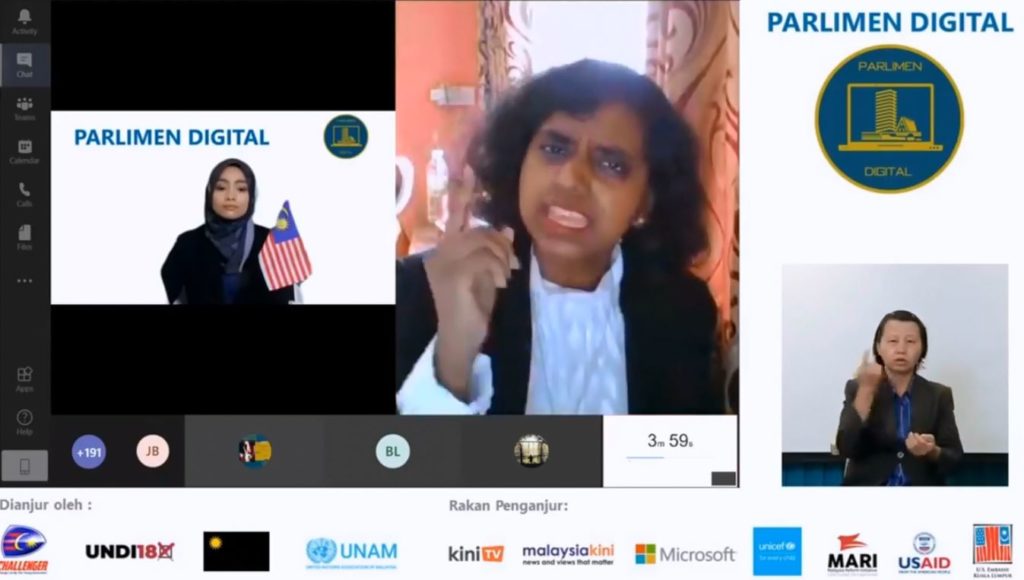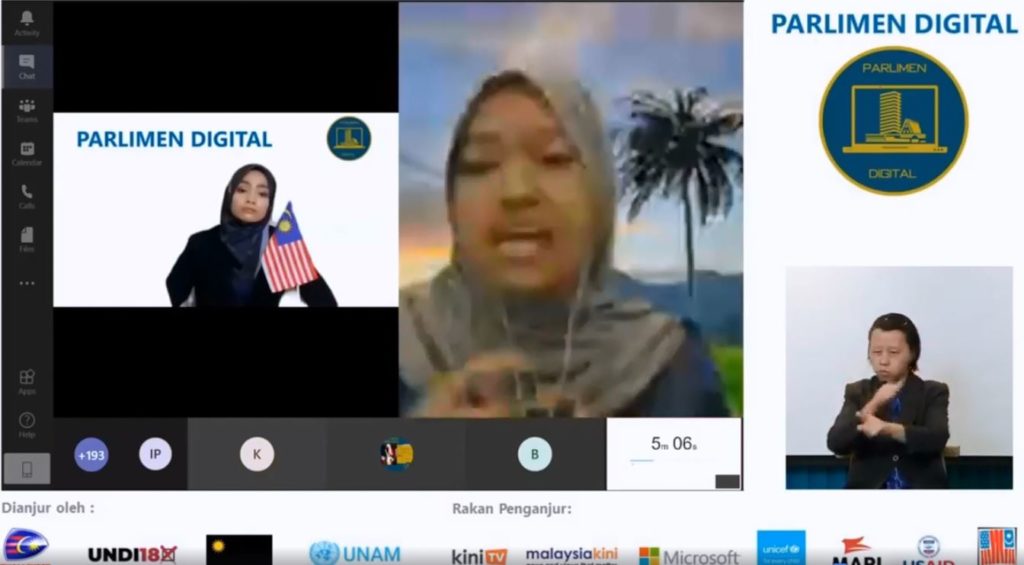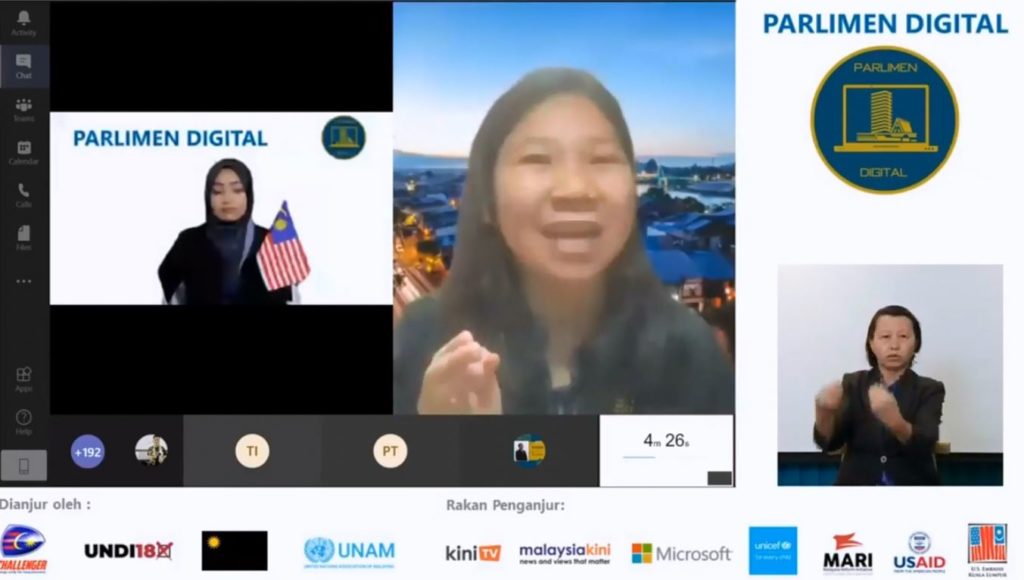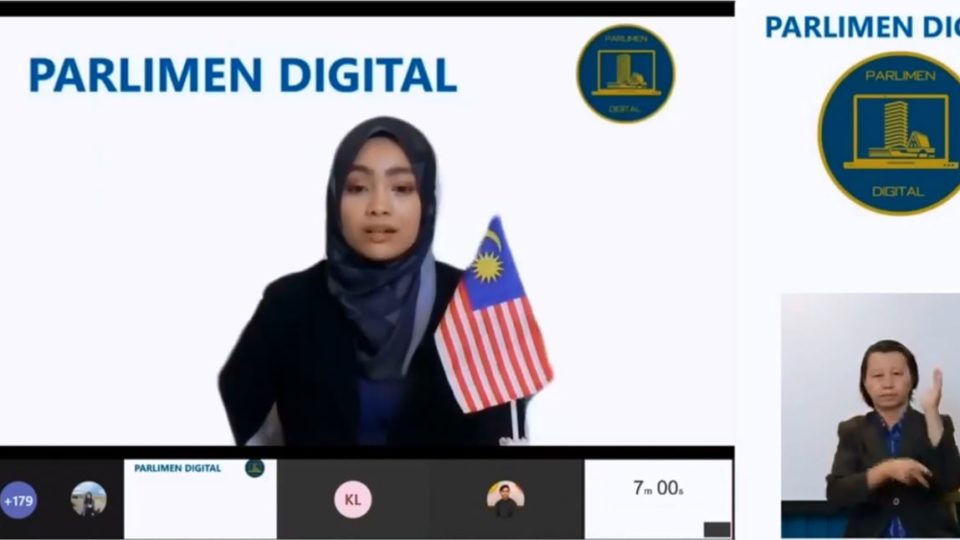Malaysia’s first-ever virtual parliament by youths went live over the weekend, shining the spotlight on education and student welfare.
A total of 222 youths representing the federal constituencies all over Malaysia convened on Parlimen Digital (Digital Parliament) online to mainly debate on issues affecting Malaysia’s economy, welfare and education.
The two-day initiative by Undi18, Challenger Malaysia and the People’s League for Democracy (Liga Rakyat Demokraktik) even drew the attention of politicians.
“I’m watching Parlimen Digital on Facebook and am impressed by the youth’s initiative,” former prime minister Mahathir Mohamad said on his Facebook page yesterday. “I believe Parlimen Digital will help identify the leaders of the next generation,” he added.
Here’s a closer look at the topics tabled:
Free meals for all students
Kuala Lumpur’s Batu constituency representative Abbernaa Dhevi proposed a nutrition-based recovery system in schools and universities to tackle the problem of malnutrition among students.
Similar to former education minister Maszlee Malik’s breakfast program, which offered free breakfast to all primary school students, Abbernaa proposed that students from schools and universities be given two meals a day.

“Besides improving internet connection and online learning facilities, we can’t abandon the physical needs of students during the COVID-19 crisis,” the 21-year-old said.
“Poor students are at risk of dropping out of schools to help their families earn a living. Research has shown that free food programs help benefit students and their families.”
Abbernaa cited research published by the Khazanah Research Institute earlier this year, which stated that free breakfast programs would benefit students in the long-term, such as longer life expectancy and increased disposable income.
“I ran a survey on 100 respondents and 64.9% of them said they feel like Malaysians, as a whole, would support a universal food program instead of one that’s targeted to at-risk groups,” the virtual parliament rep said.
A universal program would prevent the stigma of poverty among students and ensure that every student receives proper nutrition throughout the school day.
To fund this initiative, Abbernaa explained that an increased tax amount should be charged to high-income individuals and encouraged private companies to channel their corporate social responsibility funds towards the project.
Progressive sex education in Malaysia
According to Padang Besar, Perlis rep Nursarah Amira Abd Aziz, sex education in the Malaysian school syllabi needs to improve and go beyond biological sex, which is thought in Form 3, when students are 15 years old.
“The current sex education we have only covers sex from a biological aspect, without looking at other aspects of sex such as consent, emotional wellbeing, sexual orientation, and safe sex,” Nursarah said.

She mentioned that one in ten Malaysian children have experienced sexual assault and called for sex education to begin in kindergarten.
“For example, we can begin by teaching kids about sexual cleanliness and consent first. Knowledge about other sexual aspects will be taught comprehensively, until the university stage,” she added.
She encouraged teachers to be more understanding of their students should the kids want to confide in their educators if they experience anything out of the ordinary like sexual assault.
Nursarah also proposed to the education ministry the idea of creating an online platform where children can voice their concerns regarding sexual issues anonymously.
“Children are currently vulnerable to the risk of being sexually assaulted and sex education will create a positive impact in the long term; so kids will know how to respond if they are experiencing sexual assault,” she said.
Improving online classes
More can be done to improve access to online learning in Malaysia.
Bintulu, Sarawak representative Marscella Ling’s survey of 453 teachers showed that the biggest obstacle to e-learning during the pandemic was the lack of response from students and parents as they were uncertain about how to transition from offline to online classes.
Another survey the 15-year-old ran to gauge the perspective of students found that nearly 50% felt that classes were not as effective when conducted online.
The youngest representative who participated in Parlimen Digital also urged the Education Ministry to draw up a comprehensive guide for teachers and students to access online learning.

“The Education Ministry can create a document to brief teachers and students before classes, such as an explanation of the Zoom software and its functions that will be used as the classes progress,” Ling said.
“This will help to mentally prepare students for online classes,” she explained. Ling, a student herself, acknowledged that education isn’t a one-way street.
“Education isn’t just about the teachers teaching, students’ participation is also vital. Hence, the education ministry’s guidelines should include feedback after online classes.”
“This way, teachers can improve online classes based on their students’ needs,” Ling concluded.
Other stories to check out:
Malaysia has not held a proper parliamentary sitting in months. Youths show how to do it virtually




